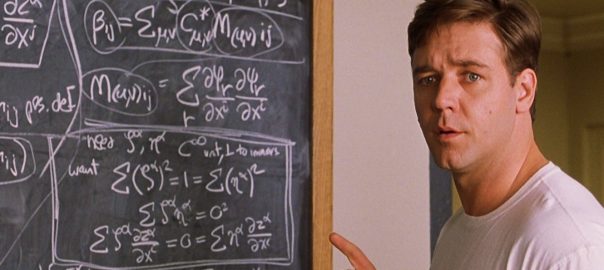Mental Illness in Film: Comforting or Triggering? | Olivia Falk

When you’re struggling with a mental illness, it can seem impossible to find comfort. Things like music, film, sports, and other things we used to enjoy can become uninteresting or even anxiety-provoking. In my experience, I found the most comfort in movies that I could relate to in my emotional turmoil. Seeing portrayals of mental illness, especially accurate ones, comforted me because I not only felt less alone, but felt less ashamed. If world-renowned actors and directors are committed to telling the story of those with mental illness, then having one must not be so unusual or shameful.
However, it can be difficult to find films that accurately portray mental illness due to stigma, stereotypes, and scenes that can trigger a negative emotional reaction rather than a comforting one. Movies such as “Girl Interrupted”, “The Virgin Suicides” and one my favorite independent films, “Short Term 12”, are incisive, but also contain graphic scenes of self-harm. So how does a film walk the fine line between being authentic and being triggering?
In my search, I’ve found several films that depict mental illness in a way that’s comforting, but not too real for viewers who are hurting. These include “Mr. Nobody”, “Prozac Nation”, and a documentary called “Depression: Out of the Shadows.” Though Prozac Nation has one triggering scene containing self-harm, the rest of the film keeps a comfortable distance.
Documentaries such as “Depression: Out of the Shadows”, “Men Get Depression”, and “This Emotional Life” are especially helpful because they are committed to accurately depicting depression rather than molding the most entertaining or shocking story. I would highly recommend these more objective portrayals of illness for those who are having trouble watching films that are more dramatically and graphically depicting their struggles.
Many other depictions of mental illness in film can be quite frustrating. Sufferers of mental disorders are often depicted as cold, awkward, or violent. Hollywood will also often muddle different disorders together. To them, it doesn’t seem to matter whether someone has OCD, depression, bipolar, schizophrenia or any other disorders. These films add to stigma and confusion surrounding mental health, which can lead suffers to feel more isolated and fearful than before. Instead, the movies that are most striking, especially for someone who is close to or has mental illness, are ones that avoid these stereotypes and instead choose to portray every side of illness.
One film that does a beautiful job of doing this is A Beautiful Mind, wherein Dr. Louis Sass (who suffers from schizophrenia) is portrayed as a bit socially awkward and cold, but still highly functional in society to the point where he wins a Nobel Prize. This kind of portrayal of success alongside mental illness is important to sufferers in recognizing they can still be successful, normalizing mental illness to the general public and giving hope and comfort to family, friends, and caregivers of the mentally ill.
In an interesting Vice article by Jules Suzdaltsev, in which he interviews Psychologist Dr. Danny Wedding about Hollywood’s depiction of mental illness, Wedding was discussing egregious portrayals of the mentally ill such as ‘Friday the 13th’ and “The Shining,” when he noted, “at the same time, there are many major films that do a surprisingly good job, and it’s becoming increasingly common for directors and producers to hire psychologists and psychiatrists as consultants” (Suzdaltsev).
In my opinion, this is a fantastic development, because the best way to accurately depict mental illness is to talk to those who spend their lives working in mental health, or those who have been ill themselves. Of course, many Hollywood productions are not yet committed to accuracy in depicting mental illnesses, but those who are will hopefully be releasing more comforting movies that are light on triggers and can continue to comfort those of us in the rough.
Source: “We Spoke to a Psychologist About Hollywood’s Depictions of Mental Illness” by Jules Suzdaltzev: http://www.vice.com/read/hollywood-sucks-at-portraying-mental-illness
